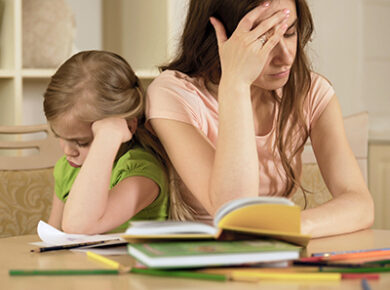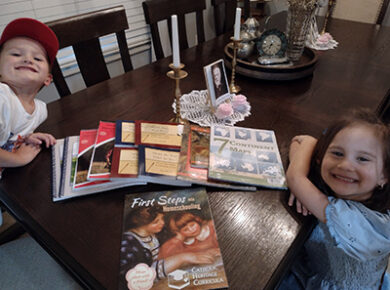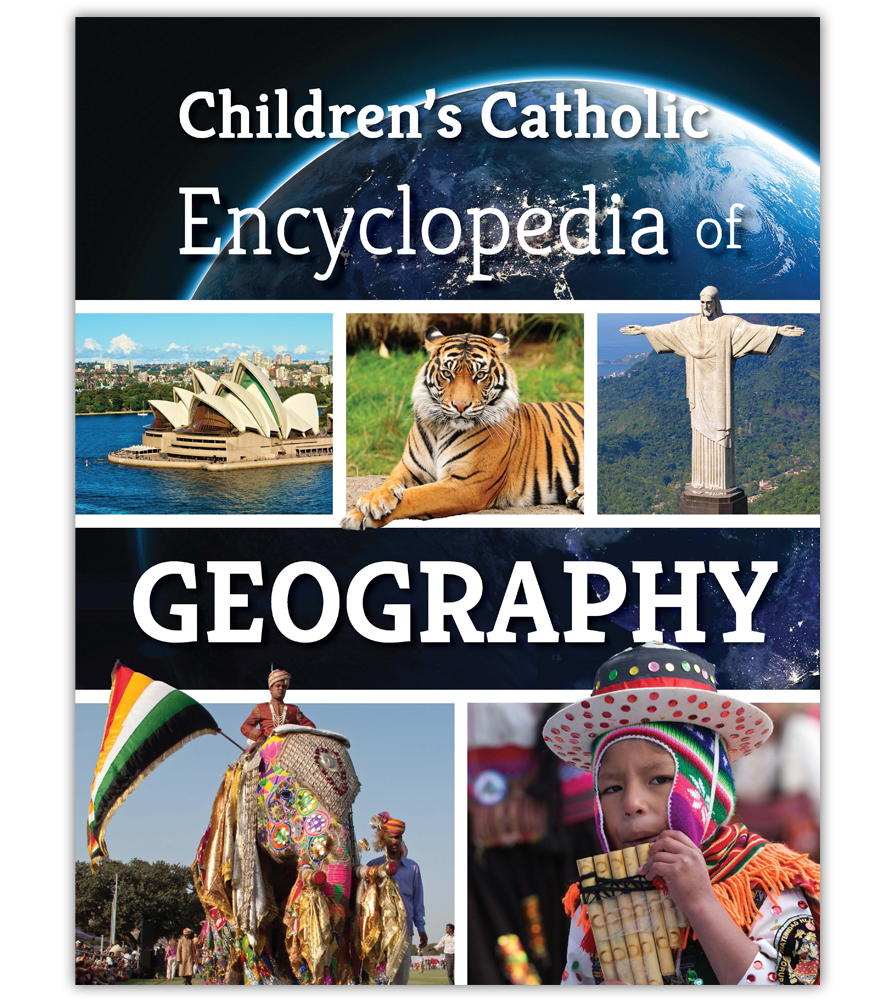What Is Classical Catholic Education?
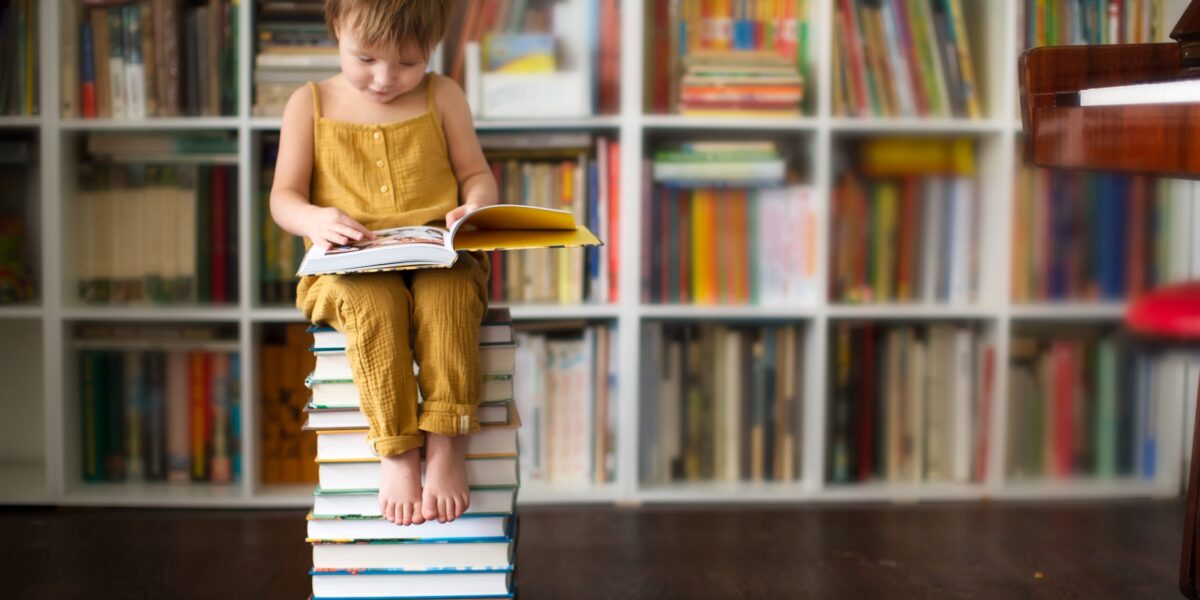
As I’ve made my way through homeschooling to a doctoral degree in literature, I’ve learned that the word “classical” means different things to different people. To some, it just means “traditional” or “good quality.” To others, a “classical” education refers to the liberal arts, the Great Books, and/or a seminar-style of learning with Latin and Greek influences.
So what is a classical education, and how should you incorporate it into your Catholic homeschool?
The True Definition of Classical Education
To be quite honest, there’s no single definition of a classical education. Many people believe that a classical education is one that is based on the educational methods used centuries ago. These educational methods, it is argued, must be good since they produced such great scholars and saints as Augustine, Thomas Aquinas, and Thomas More.
The problem with this argument is that Sts. Augustine, Thomas Aquinas, and Thomas More lived in different time periods and each received a different type of education. No wonder there are so many different varieties of classical education programs available today! Different curriculum developers focus on different educational practices from the past and make them the keys to their educational methods.
Instead of trying to recreate the practices of a particular age, it’s more important to understand the true purpose of education. Today’s society sees education in a utilitarian light, as a tool for getting a good job and making a lot of money. The classical understanding of education is fundamentally different. The Catholic philosopher Peter Kreeft explains:
Education is a change from darkness to light, from small mind to large mind, that is, from ignorance to knowledge, and (much more important) from folly to wisdom. . . . Education, as classically conceived, is not primarily for citizenship, or for making money, or for success in life. . . . The first and foundational purpose of education is not external but internal: it is to make the little human a little more human, bigger on the inside.
As Peter Kreeft explains, the purpose of education is not to guarantee that our children get good jobs, but to make our children more fully human. Certainly our children need to be taught useful skills, but it is more important for them to grow in their relationship with God and others; to grow in courage, kindness, patience, and determination; and to develop their natural talents and interests so that they can be who God made them to be.
Making Your Students “Bigger” on the Inside
Since the primary goal of classical education is to make our children “a little more human, bigger on the inside,” it is impossible to prescribe a single curriculum or educational method for every child. Why? Because God made all children unique, with different personalities, talents, and learning styles.
As every educator knows, what works with one student won’t necessarily work with other students. And the goal of education is not to teach certain skills but to help each student become the unique person God made him to be. So one cannot “force” an unsuitable educational method upon a student and have any hope of success. You may succeed in teaching the desired information, but you will not succeed in enriching the child’s soul.
Adapting the Education to the Child
Instead of forcing your child into a standard mold, it is more truly classical to adapt your child’s education to suit his unique interests and learning style. An important step in making the little human “bigger on the inside” is to encourage the child’s natural love for learning and discovery. CHC materials make this easier for educators by featuring hands-on activities, story-based learning, and aesthetically pleasing textbooks. CHC’s lessons are also designed in bite-sized lessons so that students can achieve mastery without meaningless busy work.
This does not mean that school will always be fun. There will always be some subjects the student finds less enjoyable than others, and there will be days when he would prefer to do anything but school. These occasions are opportunities for the child to grow interiorly in perseverance and self-discipline. This means that even difficulties can work towards making the child “bigger on the inside”–so long as the difficulties are occasional occurrences and not a permanent state of affairs.
If your student sees school as a burden that must be dragged through childhood, he may be learning perseverance, but it is questionable whether his soul is being enlarged in any other way. (If school is feeling like a burden, check out this article on burnout).
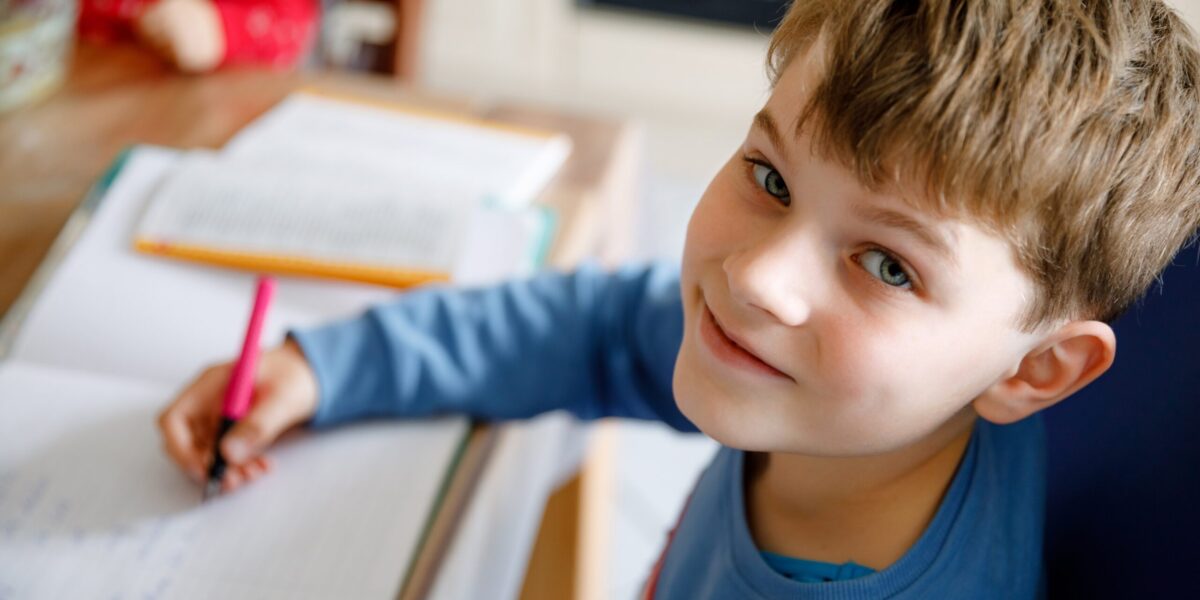
Don’t Feel Pressured by What Others Are Doing
It’s easy to say that education should be adapted to the needs and interests of the child, but it’s harder to put this into practice. This is especially the case when you see other homeschool families teaching their children Latin and reading the Great Books. There is a kind of prestige that comes with using the same educational methods and studying the same texts as in the Middle Ages.
In certain circles, a classical education is automatically considered the best education. I know from experience that this is true, but only if you define a “classical education” as an education that is tailored to the child’s needs and interests. My own educational experiences can shed light on this.
My Experience with a Classical Education
I was homeschooled from preschool through high school using CHC’s curriculum. When I graduated from high school, I chose to attend a liberal arts college. There I flourished as I read the Great Books of Western Civilization. I studied the Trivium: Grammar, Logic, and Rhetoric. I read Cicero in Latin and Homer’s Odyssey in Greek. Later, I returned to study the Great Books at the graduate level, and I ended up writing my doctoral dissertation on St. Thomas More’s Historia Richardii Tertii.
By anyone’s standards, I have had a thoroughly classical education. I am deeply grateful to the college and university professors who taught me so much. But I am even more grateful to my parents, who adapted my elementary and high school education to my interests instead of forcing me into a predetermined educational mold.
I studied Latin as my required language in high school, and since I was a voracious reader, I read a few of the Great Books on my own. Other than that, my pre-college education did not include many of the elements that are commonly called “classical.” It was completely classical, however, in prioritizing my development as a person instead of trying to fit me into a predetermined mold.
I’m Glad I Didn’t Study the Great Books as a Child
Although I am interested in the Great Books and the liberal arts as an adult, I’m glad I wasn’t required to study them as a child and a teenager. For one thing, studying the Great Books is quite time consuming, so I wouldn’t have had time for friends, outdoor play, or developing my own hobbies and interests. Even as an adult with a Ph.D. in Literature, I would not trade my memories of carefree afternoons in the woods for anything.
Another thing to keep in mind is that most of the Great Books do not appeal to children and teens. This is not surprising, since the Great Books were written for mature adults. If I had been required to study the Great Books as a child, I believe it would have stifled my desire to learn rather than given me a love for learning.
The greatest gift my parents gave me was to nurture my love for learning, allowing it to blossom along with the rest of my personality. This has been an incalculable advantage to me in college and my adult life.
Do Whatever Is Best for Your Children
Nevertheless, I don’t mean to discourage parents who are looking forward to introducing their children to the Great Books. If you’re enthusiastic about reading the Great Books with your children, then go for it! Your enthusiasm will probably spill over to your children, and you’ll be able to adapt the subject to their interests and ability levels.
But if you aren’t interested in that sort of thing, don’t feel pressured to do it just because others are doing it. The goal of classical education is to help the child grow into the person God made him to be. It is counterproductive to teach your child Latin if that quenches his desire to learn. The most classical education is the one that allows your child to thrive and develop his unique talents and interests.
CHC’s Approach to Classical Education
This is why Latin and the Great Books are not included in CHC’s core curriculum. Instead, CHC offers a flexible core that leaves plenty of time for pursuing other interests – which may include Latin or the Great Books.
It’s also easy to use CHC as a core and then adapt it differently for each child: one might do well with Latin, while another might be more interested in hands-on pursuits like art, music, or animal husbandry.
There IS no one right method of homeschooling, just different ways to prepare different kids with different abilities and different interests to “live Jesus” in their families, in the workplace, and in the world.
About RoseMary C. Johnson
RoseMary C. Johnson was homeschooled with CHC materials from preschool through high school. She completed a Ph.D. in Literature at the University of Dallas. RoseMary is now the General Editor of CHC’s publications, including The Treasure Trove of Literature and Ever Ancient, Ever New: Art History, Appreciation, Theory, and Practice.
Related Blogs
If you enjoyed this article, you might be interested in the related articles below.
Favorites
Explore CHC’s top favorites! From art to literature, science to hands-on religion, CHC has materials to enrich every Catholic homeschool.



